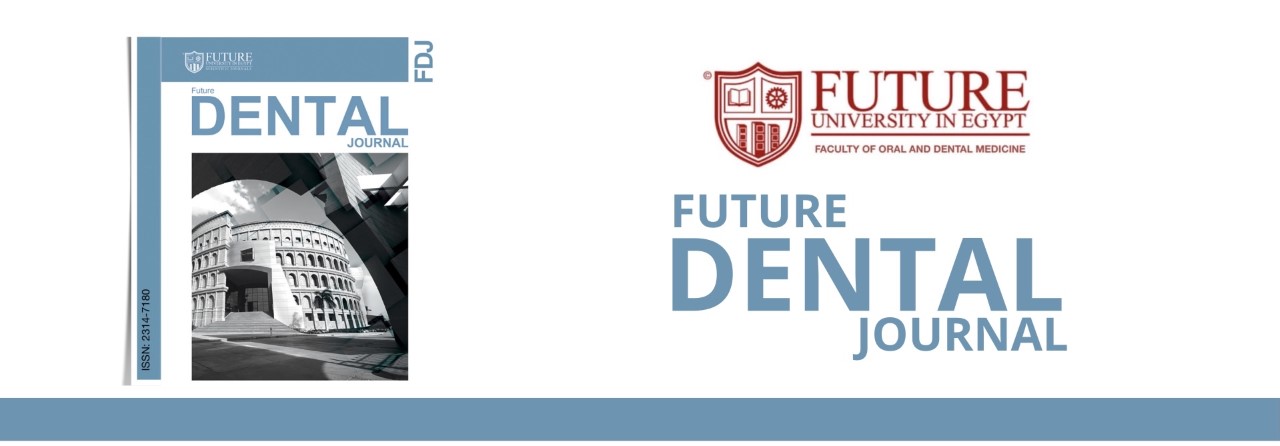
ORCID
https://orcid.org/0009-0008-4392-7662
Abstract
Aim: Compared the clinical performance by using Advanced Glass Hybrid technology glass ionomer (AGH) in cervical carious lesion, versus resin modified glass ionomer (RMGI) according to modified USPHS criteria over one year. Materials and methods: An overall of 32 elevated carious index adult patients with at least one carious class V cavity on their posterior teeth had been split into 2 equal groups randomly based on the received restoration system. Two pairs of restorations were used, either; Equia Forte HT Fill (AGH) or Fuji II LC (RMGI), both materials were employed in accordance with the manufacturer's guidelines. Fillings have been assessed at baseline, as well as following three-, six-months, and one-year utilizing Modified (USPHS) guidelines. Data were recorded and statistical analyzed. Results: There was nonsignificant variation across all the follow-up times for all tested outcomes according to the intragroup comparison within AGH. However, there were significant variations for peripheral adaptation, discoloration, as well as surface texture within RMGI between different follow-up periods. There was no significant variation in the overall success of both restorations, with the showing a success rate of 80% and 61.5% respectively. Conclusions: Both restorations showed similar clinical performance over a year, indicating their effectiveness in cervical restorations. AGH may offer advantages over RMGI in treating cervical carious lesions and may replace other recommended restoration systems for cervical carious class V restoration.
Recommended Citation
Zayed AM, El Hoshy ِZ, el-bialy mr. Evaluation of Glass Ionomer with Advanced Glass Hybrid Technology versus Resin Modified Glass Ionomer in Adult Patients with Carious Cervical Lesions after one year: A Randomized Clinical Trial.. Future Dental Journal. 2025; 10(2):190-207.

